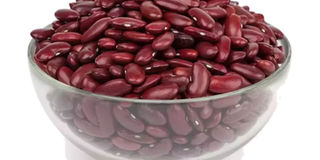Your body needs cereal

What you need to know:
- Magnesium, contained in the cereals goes to our muscles. It also helps regulate muscle contractions including heart muscles and strengthens the bones.
- Blisters are not only painful and inconvenient but also be unsightly. Given their appearance most of us can be tempted to pop them just to get it over with, this however, is a bad idea, writes Beatrice Nakibuuka.
Cereals or grains are rich in B vitamins, which help your body convert food into energy. Unlike processed grain products that lack fibre, whole grains are more filling than the processed ones and have fewer calories.
Protein sources
Joshua Ssozi, a nutritionist at Makerere University, says cereals are low-fat, nutrient-dense foods with many essential vitamins and minerals. They are also rich in iron, B vitamins, zinc, and proteins.
Oats, millet, rye, sorghum are all good protein sources. Maize is a good source of dietary fibre and protein, while being very low in fat and sodium. It is also a good source of phosphorus, magnesium, manganese, zinc, copper, iron and selenium.
He says, “Proteins are present in every tissue of the cereal grain. The concentrated protein-rich areas are scutellum, embryo, and the aleurone layer and moderate amounts can be found in the endosperm, pericarp, and testa.”
The concentration of proteins becomes denser in the endosperm from the centre to the borderline. The cereal proteins are called gluten proteins. This gluten has extraordinary elasticity and mobile properties, mainly present in wheat grain, but also in some other types of cereal.
Bowel movements
Whole grains like millet are very rich in fibre which helps in healing gastrointestinal disorders. Ssozi says, “Regularly making millet a part of your diet will help maintain a healthy gut and prevent peptic ulcers and colon cancer. It can eliminate problems like constipation, excess gas, bloating, and cramping.”
Regular elimination of waste helps boost your kidney, liver, and immune system health, as those organ systems are closely related to the body’s metabolic activities.
Source of vitamins
If you have a vitamin B complex deficiency, add whole grain cereals to your diet. These vitamins are present in the outer bran. The refining process usually reduces the vitamin B content.
It is important to note that although cereals are nutrient dense, the refining process degrades their quality. “The degree of milling, polishing, and refining to some extent decides the nutrient content of cereals. Some nutrients are lost during food preparation, especially vigorous washing, soaking, and cooking methods, which result in the depletion of the nutrients on the skin of the grains,” Ssozi remarks.
Prevent nerve defects
Cereals can be a rich source of folic acid too. Folic acid has been proved to play a big role in cell growth and development, as well as tissue formation for a foetus and deficiency is likely to cause nerve defects in expectant mothers. It is therefore recommendable that pregnant women eat more cereals.
Strengthened muscles
Magnesium, contained in the cereals goes to our muscles. It also helps regulate muscle contractions including heart muscles and strengthens the bones. Iron helps get oxygen to our blood cells and muscle cells from the lungs, accounting for good energy levels and so on. Whole grain breakfast cereals are ideal for good vitamin and mineral intake, while enriched or fortified breakfast cereals are second best.




